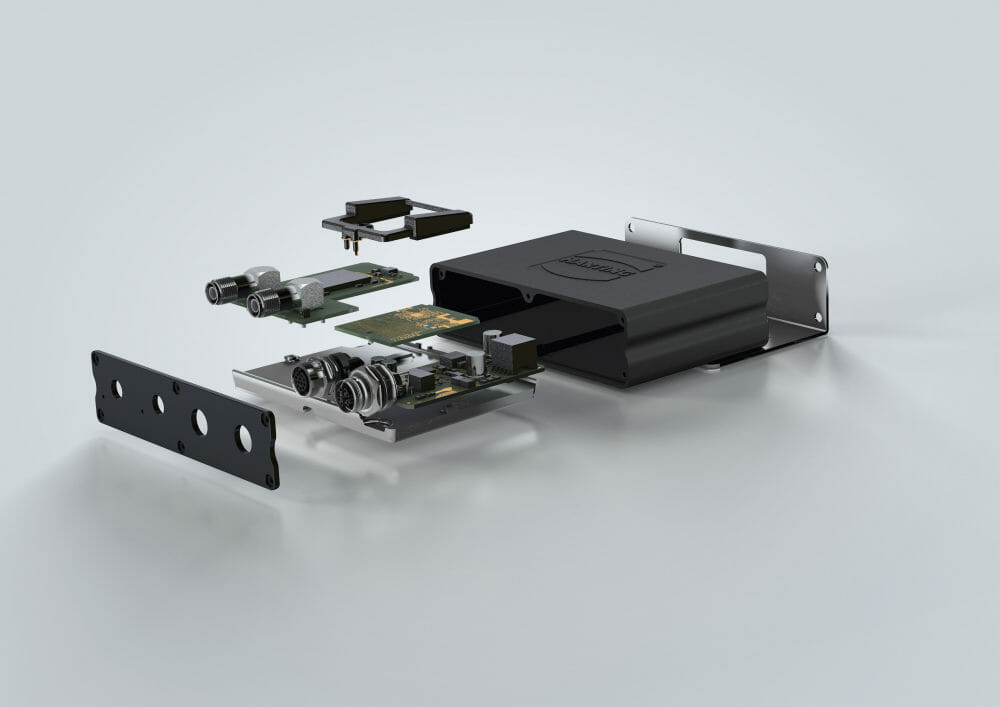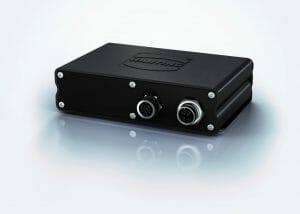Industry 4.0 Summit
Manchester Central Convention Complex
Manchester, UK, 4-5 April 2017
At the Industry 4.0 summit, HARTING (stand V25) is showing its range of Industry 4.0 solutions, incorporating Modular Integrated Computer Architecture for industrial networking, and RFID (Radio Frequency Identification) systems.
HARTING’s approach to smart manufacturing is grounded in the addition of intelligence to manufacturing processes with the aim of achieving a high level of connectivity, visibility, awareness, and adaptability at all stages in the supply chain. By enhancing users’ processes with RFID technology, HARTING makes it possible to implement solutions that deliver real profitability gains without the need for re-engineering already proven, stable manufacturing processes.
HARTING’s Integrated Industry/IoT systems involve the use of RFID based technology to collect manufacturing data which can then be analysed and “operationalised”. This allows production lines to be adjusted, maintained, or re-tooled, based on live, accurate, production information that assists in creating a competitive advantage in complex markets.
At the Industry 4.0 Summit, HARTING will demonstrate a practical implementation of these concepts developed for Tritec Systems Ltd., a leading UK control systems integrator. Tritec’s integration solution is built around a simple industrial HMI equipment interface, and enables rapid and easy integration of RFID with PLC control systems. To minimise the need for customisation Tritec needed a range of RFID readers that could be deployed in a wide variety of situations and yet communicate over standard networking interfaces and protocols. The company chose HARTING UK’s wide range of RFID products because they are suitable for use in almost all industrial and commercial application areas including manufacturing, transport, infrastructure, stock/asset tracking and many others.
Also featured is HARTING’s capability to allow manufacturers to integrate together the two key manufacturing IoT elements machine-to-machine communications and manufacturing logistics. This is through its new open-source industrial computing device known as MICA (Modular Industrial Computing Architecture). MICA can save, evaluate and process data from sensors, and can then either act as a stand-alone offline computer that can make local decisions, or operate as a gateway via the internet to allow access to a higher-level IT system.
“By applying both of these innovative HARTING solutions – passive UHF RFID and MICA technology – production line manufacturing managers can monitor the condition status of key machinery in real time for material supply chain management or preventative maintenance issues”, comments Howard Forryan, Product Marketing Specialist: “They can then carry out continuous control adjustments through the separate simple, compact and reliable computing device which provides secure access to the main operating software system to maximise process efficiencies. As a consequence, users can achieve important productivity gains.”
MICA operates with open architecture software, allowing it to be easily customised. Software applications run in Linux-based containers which hold all the necessary libraries and drivers. As a result, there should be no concerns over data security when MICA is allowed access to a higher-level production operating network.
New connectivity products shown by HARTING include a range of sensor/actuator boxes which allow sensors to be quickly and easily connected to passive distributor boxes using standard M8 and M12 slots. With a choice of 4, 8 or 10 slots, the sensor cables no longer have to be drawn from the sensor into the control cabinet, but only to the local, application-led distributor box. The rest is taken care of by a master line to the control cabinet.
By using the new sensor/actuator boxes, users will save both time and money. Installation is much quicker, and costs are reduced because fewer lengths of cable are needed between the sensor and the control cabinet.
About HARTING
The HARTING Group develops, manufactures and distributes electrical and electronic connectors, network components, pre-assembled system cables, and backplane assemblies. These products are capable of withstanding the harshest demands in industrial environments and provide high data rates for electronic applications.
HARTING connectors and network components are used in mechanical engineering and plant manufacturing, in automation systems, energy generation and distribution, and in electronic and telecommunication markets. Industrial connectors are also vital in construction machinery, rail vehicles and shipbuilding. HARTING offers Ethernet network components and cable systems for both indoor and outdoor networking applications involving power and data.
HARTING today employs a workforce of nearly 4200 in 43 countries. For further information visit www.HARTING.co.uk







